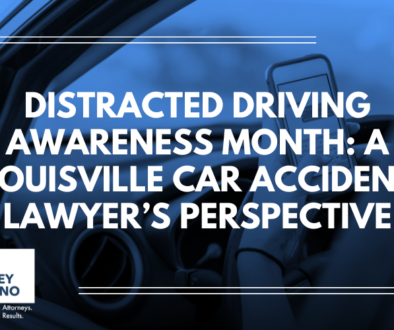How Much Does a Lawyer Cost: Understanding Contingency Fees
Navigating contingency fees and the legal landscape can be a daunting task. One of the primary concerns for people who have suffered serious personal injury and are seeking legal representation is the costs involved. Typically, lawyers charge for their legal services in various ways, ranging from hourly rates to flat fees. However, one alternative fee arrangement that reputable personal injury lawyers and other civil lawyers use is the contingency fee. In this blog post, we will delve into the concept of contingency fees. We will also explore
- how contingency fees work
- their advantages and disadvantages
- what individuals should consider when opting for this payment structure.
What is a Contingency Fee?
A contingency fee is a payment arrangement commonly used in serious:
- Car accident cases
- Truck accident cases
- Motorcycle accident cases
- Slip and fall cases
- Medical malpractice cases, medical negligence cases
- Wrongful death cases, death cases
- Dog bite cases, animal bite cases
- Nursing home neglect cases, nursing home negligence cases, nursing home abuse cases
- Sexual assault cases, sexual harassment cases
- Workers compensation claims, work injury cases
- Consumer fraud cases, consumer protection cases
- Excessive force cases, police shooting cases, Section 1983 cases
- Life insurance claims, life insurance cases
- Swimming pool injury cases, swimming pool death cases
- Other civil matters include breach of contract cases.
The defining characteristic of a contingency fee is that the lawyer’s compensation is contingent upon the successful outcome of the case. In other words, the attorney only gets paid if they secure a favorable result for their client. This is typically in the form of a settlement or a court award.
What do most lawyers charge for a contingency fee?
Contingency fee agreements are often based on a percentage of the client’s recovery. The specific percentage can vary. However, it is typically in the range of 33 1/3% to 40% of the final settlement or judgment amount. If the lawyer fails to win the case, the client is not required to pay any legal fees.
What are the benefits of Contingency fees?
One of the significant advantages of contingency fees is that they provide access to competent legal representation for individuals who might not be able to afford traditional hourly fees. This allows clients with limited financial means to pursue justice and compensation for their injuries.
Do contingency fees include expenses?
Contingency fees are a common payment arrangement in personal injury cases where the accident attorney’s fee is contingent upon the outcome of the personal injury case. While these fees typically cover legal services, they often do not include expenses incurred during litigation, such as court filing fees, expert witness fees, or deposition costs. Injury victims may be responsible for these expenses regardless of the case outcome at some personal injury firms. However, Stein Whatley Astorino, PLLC, advances these costs and deducts them from the client’s settlement or award if successful. Our clients do not owe us the case costs we advance unless we are able to recover for the client.
It is crucial for clients to discuss expense arrangements with their prospective attorneys upfront to avoid surprises and understand their financial obligations throughout the claims process. Clear communication about what is covered by the contingency fee and what expenses may arise ensures transparency. It helps manage expectations for both parties involved.
At Stein Whatley Astorino, PLLC, we believe that exceptional legal representation should be available to everyone. Not just the rich or elite. Contingency fees allow for access to this representation.
Contingency fee arrangements align the interests of the client and the attorney. The lawyer has a direct stake in the outcome of the case. This can be a powerful motivator to work diligently and strategically to secure a positive result for the client.
Clients feel more comfortable taking legal action, knowing they won’t have to pay legal fees unless they win the case. This helps alleviate the financial burden and risk associated with pursuing litigation by the client.
Lawyers accepting cases on a contingency fee basis often carefully select the type of cases they take on. Understandably, their compensation depends on the success of the outcome. This can result in a higher level of scrutiny and dedication to each case.
Is a Retainer Fee Necessary With a Contingency Fee Agreement?
Retainers serve as a financial security measure for many lawyers, ensuring payment for their services. However, in contingency fee agreements, retainers might not be necessary. Contingency fees allow clients to pay legal fees only if they win the case, often a percentage of the settlement. This arrangement eliminates the need for upfront payments, making legal representation accessible to injury victims who might not be able to afford retainers. Additionally, it aligns the interests of the injury lawyer and the client, as both share in the outcome. While retainers provide stability for lawyers, in contingency agreements, their absence promotes greater accessibility to justice. Thus, in such arrangements, retainers may not be essential.
What should I be aware of when choosing a lawyer?
While contingency fees provide access to legal representation, clients should be aware of the percentage of their recovery going to their attorney. It is crucial to discuss and agree upon this percentage upfront to avoid any surprises later on. The lawyer and client should sign a written contract outlining the fee structure at the beginning of representation. Be very wary of any lawyer or law firm that does not have you sign a contract.
Also, be wary of any lawyer or legal firm that attempts to charge a contingency fee in excess of 40%. Some settlement mills advertising on television charge 45%, 50%, 55%, or more to make up for the significant amount of money they spend on advertising. They often settle their clients’ cases for a lower value because of the sheer volume of cases they pursue. They aren’t set up to litigate the cases that need special attention to unlock the case’s full and fair value.
Are contingency fees worth it for complex cases?
Lawyers may be more inclined to take on straightforward cases with a higher likelihood of success on a contingency basis. Complex cases or those with uncertain outcomes might be more challenging to find representation for on a contingency fee arrangement. However, our experienced litigation lawyers and experienced trial lawyers are adept at understanding complex cases.
Stein Whatley Astorino, PLLC, has become known in the legal community for taking complex legal cases and getting results for our clients. We often get clients referred to us from other personal injury lawyers and civil lawyers who aren’t familiar with the complexity of some cases.
In some cases, lawyers may expect a higher level of involvement from the client. This may include providing documentation, attending meetings, and actively participating in the legal process. This is especially true when the attorney’s compensation is contingent upon the client’s cooperation.
How to choose a contingency fee lawyer
Contingency fees offer a valuable option for individuals seeking competent legal representation without the immediate financial burden of upfront attorney fees. This payment structure aligns the interests of the client and the lawyer. It also fosters a partnership where success is mutually beneficial. However, it’s crucial for clients to fully understand the terms of the contingency fee agreement, including the percentage of recovery and any potential out-of-pocket expenses.
When considering legal representation on a contingency basis, individuals should carefully evaluate:
- the complexity of their case
- likelihood of success
- overall costs involved
Seeking consultation with experienced lawyers who offer transparent and fair contingency fee agreements is an essential step in ensuring access to justice while navigating the legal terrain.
Consult with the experienced lawyers at Stein Whatley Astorino, PLLC, if you want superior legal representation. If Matt Stein, John Whatley, and Rob Astorino take your case on a contingency fee basis, they will always use a straightforward and transparent agreement.




